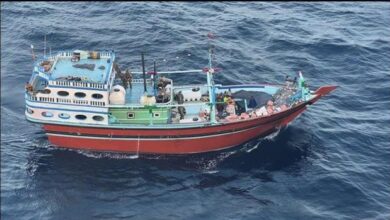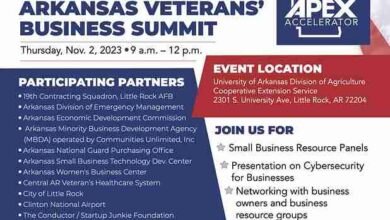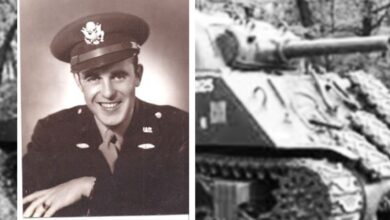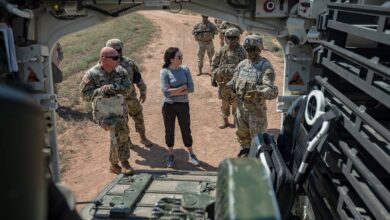Veterans on launching small businesses after leaving military
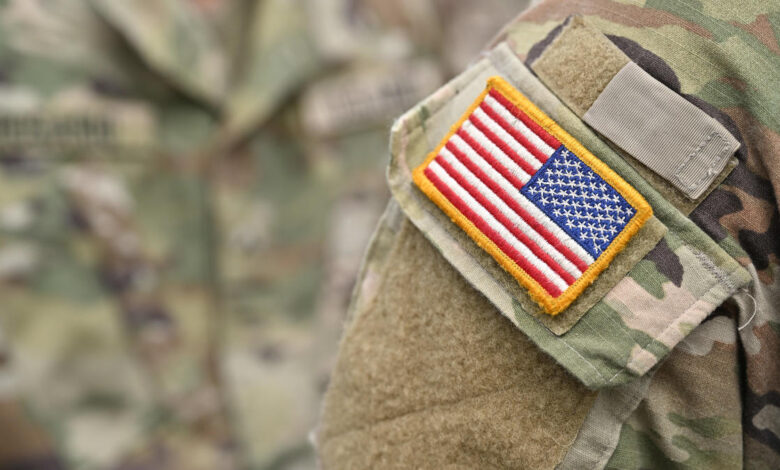
With Veterans Day on November 11, 2023, Yahoo Finance Live spoke with two veteran entrepreneurs about the challenges of starting a business post-service and supporting fellow veterans.
Zach Husted, CEO of Pillars of Valor, launched his coffee company after struggling with PTSD that nearly led to suicide. A conversation with a close friend sparked the idea to give veterans a space to openly discuss their experiences. Pillars of Valor, launched on Veterans Day 2022, donating 7% of revenue to the Minnesota Military Appreciation Fund to aid veterans’ transition back to civilian life. Husted sees it as “full circle” way to give back, having once received a grant from the fund himself.
Steve Gagner, CEO of 14th Star Brewing Co., recalled how his brewery began as a “daydream in the mountains of eastern Afghanistan” about life after the military. He and a friend envisioned starting a brewery focused on what are the two things he says soldiers think about – leaving the military and beer. Now distributed in 9 states, 14th Star aims to continue making an impact supporting veterans and charities on a larger scale.
“What happens is you lose a big part of that fabric of your life and it’s a tough transition for people as they go from, you know being part of this big ecosystem of life into like how do you mesh back into everyday world?” Husted tells Yahoo Finance.
For more expert insight and the latest market action, click here to watch this full episode of Yahoo Finance Live.
Video Transcript
JOSH LIPTON: Veterans’ Day is around the corner, and we’re highlighting veteran-owned businesses and looking at the challenges of starting a company after serving and how they’re supporting other veterans trying to assimilate back into everyday life. Joining us now is Zach Husted, CEO and president of Pillars of Valor, a coffee company based in Minnesota, and Steve Gagner, founder of 14th Star Brewing Company. So, Zach, let me start with you, and just talk to me about the company. How did you get this idea to start the company?
ZACH HUSTED: Yeah, hey, thanks for having me. Zach Houston, Pillars of Valor. I started the company. To be quite frank, I was one of the– I almost became one of the statistics that you hear about. And this is one of the first times I’m publicly talking about it, but I almost became one of the veterans that committed suicide. And I called one of my buddies. I sat down, I paused, and I got lost. And out of that came a great conversation.
And my buddy, Caleb, is a guy that’s in the coffee industry. And I said, Caleb, I’m like, how do we get more people to sit down and talk and have that moment where they can connect with people? So my buddy, Caleb, he’s like, well, what do you want to do about it? And I said, you know, Caleb, I think God’s calling me to say I should start a coffee company because of how this has come about.
And Pillars of Valor was born from that moment. And I launched it last November 11th on Veterans’ Day. And I give back 7% of all my top line revenue to a local veteran company– or excuse me, a local veteran nonprofit organization. And I’m pretty excited about where it’s going, the growth that it’s had, and we can talk more about the challenges that we face, but that’s kind of the impetus of how it started and why Pillars of Valor is what it is.
AKIKO FUJITA: Zach, when you talk about some of the challenges that you faced prior to starting this, how much of that stemmed from the challenges in transitioning back to life back here after your deployment? Can you talk a bit about that and the road that it took to find what that next step would be or the next chapter would be for you?
ZACH HUSTED: Yeah, so going through 12 years of the service, you know, I started when I was 17. I joined and went to basic training, and I spent a significant portion of my life being in the service. And I left in 2009 when my daughter was a year and a half old, and I came home from that deployment. And you know, she’s two. And I spent a lot of time away. And now she she’s a big part of my life, you know. And she’s 15. And what happens is you lose a big part of that fabric of your life.
And it’s a tough transition for people as they go from being this– being part of this big ecosystem of life into, like, how do you how do you mesh back into everyday world. And so there’s one day, you’re in the zone of this multimillion dollar machine of a cog of fighting a war, and the next day, you’re at home with your family. So the buffer of, like, the old World War II stuff, where you’re getting on a ship and you’re coming home and it’s months and it’s weeks, it’s now days.
And so the challenges are tough. The ability to make it so that people can transition back in, it’s hard, it’s real. And people think of veterans as the ones that were like old World War II Vietnam veterans. They’re not. They’re the guys you’re going to hear from today, myself and the gentleman with the Brewing Company. And it’s a different face. It’s a different generation.
JOSH LIPTON: And Steve, I want to turn to you now. And just tell us more about 14th Star Brewing Company.
STEVE GAGNER: Sure. Yeah, 14th Star started as a daydream in the mountains of Eastern Afghanistan. My best friend and I were stationed over there. It was our second combat tour together. And when you’re deployed, there’s a couple of things you think about, one of which is the day you can get out of the army, and the other thing is, well, you think about beer. And we’d been longtime home brewers, and we wanted to think about what we were going to do after the Army and something that was going to have an impact, something that was going to matter to our community and to our fellow veterans.
To Zach’s point, there are a lot of veterans who– they don’t hit the ground running, and they can use some assistance. And so we set out to start the brewery, not just to create the world’s greatest beer, which I think we’ve accomplished. I’m biased. But we set out to create a business that actually mattered and made a difference to veterans. And in that respect, I think we also succeeded.
AKIKO FUJITA: Steve, what are some of the lessons that you learned during your time in the Army that you’ve been able to apply to your current business?
STEVE GAGNER: Yeah, so I currently teach business at the University of Vermont. That’s my real job. I have a team here who essentially runs the business based on our guidance. We have a fantastic team here. But what we’ve learned in the service is planning, leadership, establishing direction, establishing clear goals, developing your subordinates, and ensuring that they all understand what the final goal and the final purpose is. And once everyone is aligned with those goals with the company’s values, you can accomplish some really amazing things.
JOSH LIPTON: And Zach, turning to you, you know, I know giving back to veterans is an important part of your business. You want to pay it forward. How do you do that at Pillars of Valor?
ZACH HUSTED: Yeah, thanks. Great question. So what we do is we give back 7% of the top line of all of our revenue from the packages of our coffee. I got a little bag here to show you. It’s called– we sell it at retail, whole bean coffee. And that’s the engine that generates the impace. And what we do is we give it to currently to a local nonprofit. It’s called Minnesota Military Appreciation Fund. And their whole purpose is to generate a mechanism to create grants for veterans who served in combat since 9/11.
And when I came home from Iraq, I was a recipient of that grant. And so I couldn’t think of a better way or a better place to start the giving to make it come full circle than this organization. And so that’s where I donate my 7% back to. As this thing scales, as this thing gets bigger, as the momentum grows, I have lots of different plans of what we can do with it and help it grow. So you know, it’s a brand that people can stand behind. It’s a brand of unity. It’s a brand of bringing people together.
AKIKO FUJITA: And Steve, looking at your brewery, your beer is distributed in nine states now, as I understand it. What’s the grand vision for you? Where do you go from here?
STEVE GAGNER: So the grand vision is to continue to make an impact on a larger and larger scale. And although the alcohol industry is condensing and getting smaller currently, most companies would take this time to hunker down and play safe. And we’re getting very aggressive in 2024. The British SAS say, who dares wins, and we’re betting on breakout success in ’24. Zach, not to be outdone, I’ve got a product shot right here, buddy.
ZACH HUSTED: Yeah, man. Yours is fantastic. Good for you. I’d have one with you if I was with you.
JOSH LIPTON: Zach Husted and Steve Gagner, guys, thank you so much for joining us for your time, and thank you both for your service.
ZACH HUSTED: Thank you for having us.
STEVE GAGNER: Thanks. I appreciate it. They’re turning the lights out on me.

